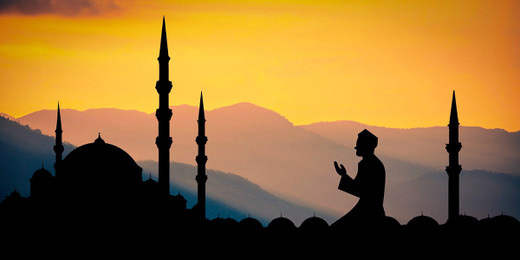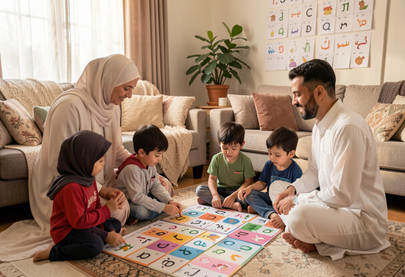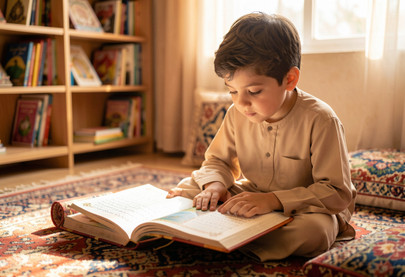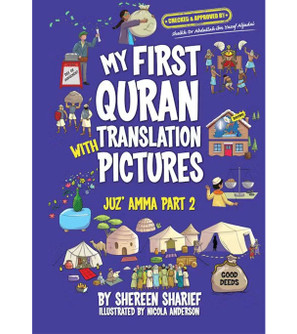What is Ramadan? A Guide to the Holy Month in 2025
What is Ramadan? Ramadan 2025 is a special month for Muslims around the world. It is a time for fasting, prayer, and showing kindness to others. Muslims stop eating and drinking from dawn until sunset, focusing on their connection with God and helping those in need.
This article explains the important things about Ramadan 2025. You will learn about key dates, fasting rules, spiritual practices, and tips to stay healthy during the month. Whether it is your first time or you want to understand more, this guide will help you prepare.
What is Ramadan?
Ramadan is one of the most sacred months for Muslims. Allah says in the Quran, “Ramadan is the month in which was revealed the Qur'an, a guidance for the people and clear proofs of guidance and criterion.” (Quran 2:185). This month is dedicated to fasting, prayer, and spiritual growth.
Fasting (Sawm) in Ramadan
The key practice during Ramadan is Sawm or fasting. Muslims fast from dawn to sunset, refraining from food, drink, and other physical needs. This fast teaches patience, discipline, and empathy.
The Significance of Fasting
The Prophet Muhammad (PBUH) said, "If a person eats or drinks forgetfully, then he should complete his fast, for what he has eaten or drunk has been given to him by Allah." (Sahih Bukhari). This shows the importance of sincerity and mindfulness in fasting.
Spiritual Reflection and Growth
Ramadan is not just about abstaining from food, but also a time for spiritual reflection. Muslims increase their prayers, read the Quran more frequently, and seek forgiveness from Allah.
Forgiveness and Spiritual Renewal
The Prophet Muhammad (PBUH) said, "Whoever fasts in Ramadan with faith and seeking reward will have his past sins forgiven." (Sahih Bukhari). This emphasizes the spiritual renewal that comes with fasting.
Ending of Ramadan 2025 with Eid al-Fitr
At the end of Ramadan, Muslims celebrate Eid al-Fitr, a festival marking the conclusion of the fast. It is a day of joy, community, and giving thanks to Allah.
Charity and Gratitude
The Prophet Muhammad (PBUH) said, "Eid is a day of joy for those who fasted during Ramadan." (Sahih Muslim). Muslims also give Zakat al-Fitr, a charitable donation to help those in need, making it a time of generosity and gratitude.
Rituals and Practices During Ramadan 2025
Ramadan is a month of fasting, prayer, and community. Muslims follow daily practices that guide their spiritual journey.
Daily Fasting Practices
Suhoor: Pre-Dawn Meal
Muslims begin their fast with Suhoor, a pre-dawn meal. The Prophet Muhammad (PBUH) said, "Partake in Suhoor, for indeed there is a blessing in it." (Sahih Bukhari). This meal provides energy for the day’s fast.
Iftar: Breaking the Fast
At sunset, Muslims break their fast with Iftar, usually starting with dates and water, following the tradition of the Prophet Muhammad (PBUH). “When one of you breaks his fast, let him do so with dates; if there are no dates, then with water, for indeed it is pure.” (Sunan Abu Dawood). Many cultures have unique Iftar traditions, from rich stews to sweet desserts, celebrating the diversity of Ramadan meals.
Spiritual Observances
Increased Prayer and Quran Recitation
Ramadan is a time for heightened spirituality. Muslims increase their prayers and recite more Quranic verses. Allah says in the Quran, “Recite what has been revealed to you of the Book and establish prayer.” (Quran).
Taraweeh Prayers
Taraweeh prayers, performed nightly after Isha prayer, are another key spiritual practice during Ramadan.
Charity (Zakat)
Additionally, Muslims engage in Zakat, giving charity to those in need. The Prophet Muhammad (PBUH) emphasized, “Charity does not decrease wealth.”
Community Involvement
Gathering for Meals
Ramadan is a time for unity. Muslims gather for Suhoor and Iftar, strengthening bonds with family and friends.
Community Service and Outreach
Community service and outreach programs help those in need. Ramadan traditions vary globally, yet all emphasize reflection, charity, and connection.
What is Ramadan Like Around the World
Variations in Customs
Ramadan is observed differently in various parts of the world. Each region has its own customs, meals, and traditions. In Turkey, for example, Pide bread is a staple during Iftar. In the Middle East, dates and milk are traditionally consumed to break the fast.
Samosas are popular in South Asia, while harira soup is common in Morocco. Local celebrations vary as well. In some countries, large gatherings and events are organized to break the fast, while others focus on family and community prayers.
Global Observance in 2025
Ramadan 2025 will begin based on the moon sighting, and the start date may vary by one or two days depending on your location. The first fast is expected to fall on either Friday, February 28, or Saturday, March 1, 2025, depending on the moon's sighting.
This is a joyous occasion marking the end of the fasting month. Notable events, such as charity drives and mosque gatherings, will take place throughout the month.
Modern Challenges and Adaptations
Many people struggle to balance work and school schedules while fasting. Some adjust their routines, such as shifting work hours or taking breaks during the day.
Technology also impacts Ramadan, with many Muslims now using apps to track prayers and Iftar times. Despite these modern adaptations, the essence of Ramadan remains unchanged: spiritual growth, fasting, and community.
Health and Well-being During Ramadan
Nutrition and Diet Tips
During Ramadan, it is crucial to maintain a balanced diet. The Prophet Muhammad (PBUH) said, "The best of your fasting is the one who takes a light Suhoor and does not overeat at Iftar."
Suhoor should include complex carbohydrates, such as oats or whole grains, to provide lasting energy. Iftar should start with dates, following the Prophet’s tradition, “Break your fast with dates, if you cannot, then with water.”
Drink plenty of water between Iftar and Suhoor to stay hydrated. Avoid fried and overly sugary foods to maintain good health.
Physical Well-being
Exercise can be challenging during fasting. However, light activities like walking or stretching can be done after Iftar to maintain physical well-being.
Managing fatigue is key. The Quran says, "And He it is who has made the night for rest..." (Quran). Rest is essential during Ramadan.
Listen to your body and adjust fasting if you feel unwell. Consulting a doctor is important if fasting affects your health.
Mental and Emotional Health
Ramadan is also a time for reflection and emotional growth. The Prophet Muhammad (PBUH) said, “Fasting is a shield.” (Sahih Bukhari), meaning it helps protect from negative emotions.
Meditation and prayer can bring inner peace. Managing stress is important, especially in a busy world. Community support is crucial in maintaining mental health during Ramadan. Spending time with family and friends strengthens bonds and provides emotional stability.
Conclusion
If someone asks you “what is Ramadan”. Tell that Ramadan is a significant time of spiritual reflection. It involves fasting, prayer, charity, and community bonding. In 2025, Ramadan will begin on February 28 or March 1, and Muslims around the world will observe it with different cultural practices.
The health benefits of fasting are crucial, as it teaches discipline and self-restraint. Ramadan’s impact goes beyond the month, encouraging year-round spiritual growth and charitable actions. The key is maintaining the mindset of gratitude and compassion.
FAQs About Ramadan 2025
What are the specific dates for Ramadan in 2025?
Ramadan in 2025 is expected to begin around February 28 or March 1 and will last for 29 or 30 days, depending on the moon sighting. Eid al-Fitr will likely fall in April 2025.
Are non-Muslims allowed to participate in Ramadan practices?
While non-Muslims are not required to fast, they can participate in certain practices, such as joining Iftar meals or helping with charity. Ramadan is an opportunity for Muslims to share their culture and spiritual practices with others.
What should I do if I am unable to fast?
If someone is unable to fast due to health reasons, travel, or other valid excuses, they can either make up the fast later or offer fidya (a charitable donation). Allah says in the Quran, “So fear Allah as much as you are able” (Quran 64:16).
Can I eat and drink during the day?
No, during Ramadan, eating and drinking is prohibited from dawn to sunset. It is essential to observe this rule to experience the full spiritual benefits of fasting.
Is fasting only about abstaining from food and drink?
Fasting during Ramadan is not just about abstaining from food and drink, but also from bad habits, such as lying, gossiping, and arguing. The aim is to purify the soul and draw closer to Allah.
Can I break my fast if I’m sick?
Yes, if you are ill or facing health challenges, you are exempt from fasting. Allah’s mercy allows those who are unwell to break their fast and make up the fast later or offer fidya (Quran 2:184).
What is the significance of Taraweeh prayers?
Taraweeh prayers are extra prayers performed during the nights of Ramadan. Prophet Muhammad (PBUH) said, “Whoever prays during Ramadan with faith and seeking reward will have his past sins forgiven” (Sahih Bukhari). It is a time to connect deeply with the Quran.
Can I travel during Ramadan?
Yes, traveling during Ramadan is allowed. If you are traveling, you can choose not to fast, but you must make up for the fast later. The Quran allows for this exemption in Quran 2:184: “But whoever is ill or on a journey, then an equal number of other days.”
















